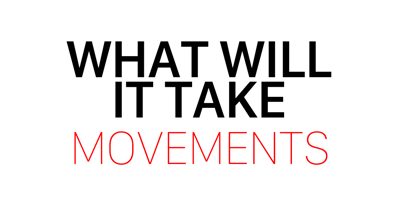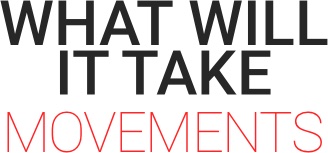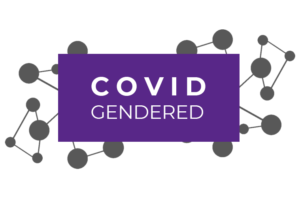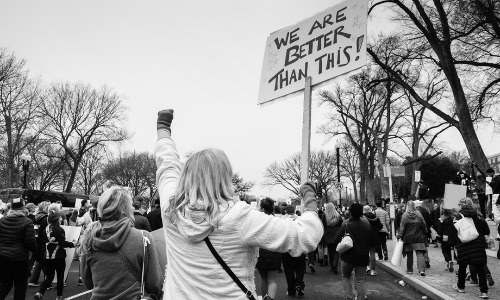By Marianne Schnall
A new study confirms what many of us have been suspecting, but now we have the concerning stats to prove it: one in four women are now considering leaving the workforce or downshifting their careers because of COVID-19.
That’s the alarming headline from this year’s Women in the Workplace report, which Lean In and consulting firm McKinsey & Company released last week. The comprehensive report—which is the largest study of the state of women in corporate America, involving 317 companies and representing over 12 million employees—marks the first time in six years of the annual report that researchers found evidence of women intending to leave their jobs at higher rates than men. Researchers warned that companies are at risk of losing up to 2 million women, which is already starting to occur according to the Labor Department’s latest report showing that 865,000 women left the workforce in September alone. This exodus threatens to erase all the gains women have made in management and senior leadership roles since the survey began six years ago.
The reasons behind this disturbing trend, which the study illuminates, are understandable: as we know, working mothers were already pulling a double shift of work and caregiving before COVID, and now the pandemic has made balancing work and home even more challenging. The study found that mothers are more likely than fathers to be spending an extra 20 hours a week on housework and childcare. The study also found that senior-level women are dealing with increased pressure at home and work, which may cause their disproportionately small numbers to diminish. Additionally, women are typically held to higher performance standards and blamed more for failure, so when the stakes are high, like they are now, women leaders are more likely than men to be judged harshly. Working from home has also blurred the lines between work and home, making many employees feel “always on,” like they must be available to work 24/7, impacting their productivity and mental health.
Among senior-level women who said they are considering stepping out of the workforce or working in a reduced capacity in their careers, almost 3 in 4 of them cited “burnout” as the main reason. Part of the reason for this burnout, the study suggested, was also that women with children were three times as likely as fathers to be responsible for a majority of the housework and childcare amid the pandemic. Women in senior-level roles were all more likely than women at other levels to be mothers, the study said. The report also warned that losing these senior-level women at work could have implications for women at all stages in their careers, as the senior-level women are more likely than senior-level men to advocate for gender and racial equality and mentor women of color.
All of these problems are further complicated and exacerbated for women of color. The study found that Black women—who already faced more barriers than most other groups of employees before the pandemic—are now also coping with the disproportionate impact of COVID-19 on Black communities plus the emotional toll of heightened focus on racial violence across the country. The study also found that Black women get less support from managers, are less likely to have strong allies, are more likely to feel like they can’t bring their whole selves to work, and are two times more likely to say that the death of the loved one has been one of their biggest challenges during COVID-19.
According to Sheryl Sandberg, COO of Facebook and cofounder of Lean In, the study is meant to be a wake up call, as well as a call to action. She cautions that companies must be bold and act fast to avoid a crisis that could set women back and undo years of progress toward gender equality. Why does it matter? In addition to equality, Sandberg also highlights the importance of diversity in the workplace, saying, “We know companies that are more diverse have better performance—and that is what is at stake here.” The report offers concrete steps for companies, including embracing flexible working norms, guarding against bias in performance reviews, communicating openly and empathetically with employees, and providing training to help managers and colleagues show up as allies for Black women.
As Sandberg points out in our conversation below, noting that “crisis is a terrible thing to waste,” this moment can also be an opportunity. Making work sustainable, diverse, supportive and inclusive isn’t just a way to help employees get through this crisis—it’s the foundation for a better workplace after COVID-19 is over. The choices companies make today will shape the future for women and everyone.
Marianne Schnall: First of all, huge gratitude for conducting this really important study that Lean In has done, which did reveal some pretty disturbing trends that we are seeing. How alarmed should we be about these findings that were in the report and why?
Sheryl Sandberg: I think we should be very alarmed. I wrote a Wall Street Journal op-ed, and I wrote, “If I had an alarm bell, I would be pulling it,” and I’m pulling it. I mean, we kind of suspected this was going on. I think a lot of people thought, “Oh, maybe this is happening,” but it is happening. More than one in four women, including a lot of senior women, are saying they’re considering downsizing their jobs or leaving the workforce. That’s a disaster; that threatens to undo literally what has taken us years of progress for women in the workplace. We absolutely need to fix this and need to fix this immediately.
Schnall: You just referred to something that the report did highlight—that companies are at risk of losing women in senior-level positions. Why does it matter that senior-level women are among the groups most negatively impacted?
Sandberg: We need women all the way up and down the pipeline, so senior matters and junior matters. But people think that the senior women are really going to stay at companies because they’ve already gotten past that barrier. And what this is saying is that even the senior level women are feeling like they can’t do it all. What this report shows is that for the average couple, for a man and a woman, often the woman is doing 20 more hours of childcare and housework than she was before the pandemic. Twenty hours a week—that’s half a full-time job! And that shows the burnout women are facing. We are threatened right now with losing our senior women and we’re threatened with losing the pipeline. And again, we know diversity works; we know companies that are more diverse have better performance—and that is what is at stake here.
Schnall: How have companies been reacting to the crisis and what should they be doing differently to help diminish these impacts?
Sandberg: This report is very specific on that. This report is a call to companies to lean in. We have to recognize that whatever the goals were before the coronavirus absolutely have to change, because things are not normal. At Facebook, we literally canceled our performance cycle for the first half of the year because we knew that people couldn’t do what they did before, and we paid everyone out at more than the full bonus. Every company has its own system, so you have to adapt to your own system, but there is no company for whom it is business as usual right now at all, so performance criteria need to be adjusted for that.
Schnall: Now that our whole way of working has been transformed, are there any ways in which this new world of how we work can be positive for women? How should companies be thinking about that?
Sandberg: I think that is exactly the right question. You know, there’s the old famous quote, “Crisis is a terrible thing to waste.” We shouldn’t waste this crisis. This crisis has shown us that people can work from home. If you had asked me before this could we send our entire workforce, including all of our contractors, home overnight and get the work done, I would have said no. Now I know we can, because we had to and we did. That means that you can rethink work for everyone, including women. And at Facebook, we are rethinking it; we’ve already announced that we are thinking about ways that more of our workforce can be remote, can work on their own time on their own terms going forward. And I think all companies need to do that.
Schnall: What did the report findings say about the impact and particular challenges that Black women face?
Sandberg: Well, we know that Black women have even greater burdens when you’ve got all the bias against race and you’ve got all the bias against gender hitting one group, that’s what happens. Now, one of the most important things this report shows—and it shows it every year, but it’s really worth calling out—is that first broken rung to manager, which is particularly broken for Black women. You know, we promote men based on potential; we promote women based on what they’ve already achieved and proven. That’s why for every 100 men we promote to manager, we only promote 85 women overall and 58 Black women. The problem with that is that means that we can never catch up, right? If you’re only promoting 58 Black women, how are you going to ever catch up? So that’s where we need to focus.
I’ll give you another one. Informal interactions with senior leaders: 59% of Black women had never, ever had an informal interaction with a senior leader. Ever. Who do you think has ever gotten promoted without an informal interaction with someone? No one. No one’s ever been promoted without that. So there is just so much left for us to do to fix this, and we absolutely need to focus on issues of race along with issues of gender.
Schnall: Absolutely. In terms of other shifts, many men are now working from home. Do you see this as an opportunity to also shift into more equal gender roles as men are sharing more in parenting and household responsibilities? I think for the first time a lot of men are actually realizing the challenges their partners have in balancing some of these different responsibilities. What can we do to address this in terms of making it so the burden isn’t all just on the women?
Sandberg: This report shows that women are 1.5 times more likely than men to be the average woman is doing 20 hours more a week of childcare and housework than they were before the pandemic. That’s half a full-time job. That’s a disaster. And women of color are doing even more. They are more likely to be doing 100% even when they have partners in their homes. So what does that mean? It means we need to fix the balance. Women have to do things, men have to do things, companies have to do things—everyone has to lean in and make work work for people. And look, these are hard times. Companies are under pressure. Companies could easily say that this is not an easy time for them to make these kinds of adjustments—to let employees do less, to not meet the goals they might’ve had. But we can’t afford that. This is the time for people to think beyond the quarter to make sure that they can really invest in the workforce they are going to need to succeed over the long run.
Schnall: We know that women were already feeling overburdened and stressed trying to balance it all, and the report found that among women considering downshifting their careers or stepping out of the workforce, almost two in three cite burnout as a main reason. What can be done on a personal or employer level to try to help manage our mental health and well-being during this time when we’re dealing with so much?
Sandberg: I think there’s a lot to do. I think companies have to explicitly address it. Managers have to explicitly address it. We have to adjust performance criteria. We have to make sure people can take the leave. We’ve given anyone at Facebook who needs it additional leave to take care of themselves, a child, a sick relative. We need to address issues people are facing. For Black women and people of color, they’re experiencing this horrific violence that’s been happening in our country, and then they go to work and no one even mentions it or asks them about it. We need to help people bring their whole self to work and help companies address this, so that people can thrive in the workforce, and we’re not doing it.
Schnall: Among the many cracks in our systems that the pandemic has exposed is how broken our caregiving systems are, how behind we are in this country in terms of policies like family leave and affordable childcare. Do you see this as an opportunity to rethink and revolutionize our caregiving systems?
Sandberg: Yes. I mean, our caregiving system just broke down, right? But the answer is yes. Again, crisis is a terrible thing to waste. Now is a moment for us to take this and make work work for parents. Get rid of the discrimination against mothers, get rid of the discrimination against race, get rid of the discrimination on gender. Make sure that everyone feels that they can meet their personal obligations, because that’s what enables you to be a really good long-term employee, and companies have to be long term. If we get through this crisis and lose 25% of our women, including our senior women, we’re not going to perform the same way. We know that more diverse teams are better performers.
Schnall: There have been a lot of recent studies showing that women-led countries have fared better in controlling the pandemic than countries led by men, highlighting the benefits of women’s leadership. How does this translate in terms of what women bring to the workplace and other places of leadership? Why is it important—beyond fairness or equality—that we address this? It was really alarming for me to see what it said in the report that we might literally erase all the gains that have been made in these past years—that just gives me chills.
Sandberg: Study after study has shown that more diverse teams perform better. Why is that? Because you get cognitive diversity, you get diversity of thought, and the best way of getting that is diversity of background, race, gender experiences, nationality. And so if we go back to a place where even more of our leaders are white men, we’re going to build worse products that do not serve all the people that the customers are. We are going to build worse services. We are going to underperform. Diverse teams perform better for a reason, which is they have more cognitive diversity to rely on.
Schnall: Now that this report is out for everyone to read and learn from, what do you hope comes out of it? What are your goals with releasing it?
Sandberg: Our goals are that I think a lot of people suspected women were burning out, but we were shocked, and I think everyone will be shocked, to see that more than one in four women are actually thinking of downsizing or leaving. Now, the good thing about this report is it is the alarm bell before people—I mean, some have certainly left and downsized and left—but before more do. So we’re hoping people recognize that we’re not just having a pandemic of a health crisis or an economic crisis—we are having a crisis for women, and particularly women of color, in the workforce, and we need to make the changes right now before it’s too late.
Schnall: Is there anything else in the report that stood out to you that either surprised you, concerned you or just something you would want to make sure is highlighted?
Sandberg: Yes. I think we need to really look at what companies aren’t doing. Less than one in three have adjusted performance criteria, less than 10% of companies have recommended that managers reduce the scope of work on their teams. I also think we need to look at informal interaction. We have data that 59% of Black women and have never had an informal interaction with a senior leader and 47% of white women. I mean, no one gets promoted without informal interactions. So this is a moment for us to fix both the official systems and the informal systems.
What I want to say is, this report is a call to companies to lean in—lean in and keep the women in your workforce that you’re going to need to be successful. The time to make those changes is definitely now.
To read the full report, visit www.womenintheworkplace.com
This interview was originally published at ForbesWomen.
 This story was produced in partnership with the International Women’s Media Foundation.
This story was produced in partnership with the International Women’s Media Foundation.
Visit COVID Gendered for more articles, information and resources.
Marianne Schnall is a widely-published interviewer and journalist and author of What Will It Take to Make a Woman President?, Leading the Way, and Dare to Be You. She is also the founder of Feminist.com and What Will It Take Movements.



